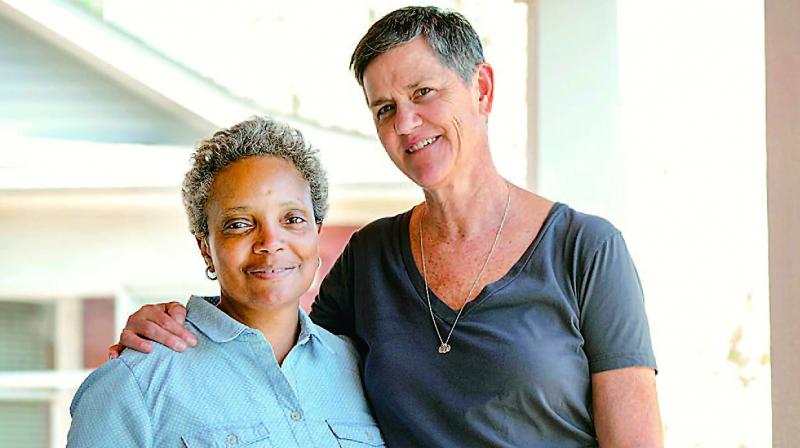A battle half-won
Moments after the former federal prosecutor took the oath of office, her fiery speech drew big cheers and applauses from all those gathered.

When Lori Lightfoot, the first black woman and first openly gay mayor of the third largest US city of Chicago was inducted on Monday, she received a standing ovation. Moments after the former federal prosecutor took the oath of office, her fiery speech drew big cheers and applauses from all those gathered.
Back home in India, however, the situation is very different. Amidst the chaos of exit polls and speculation on the next Union government, sprinter Dutee Chand is at the receiving end after she became the first sportsperson in India to reveal being in a same-sex relationship with a girl from her village in Odisha.
Dutee is since facing backlash from her own family, who is threatening to send the athlete to jail for her comments over her sexual orientation. However, she shares a different version.
“Initially, my parents and even my partner’s parents accepted our relationship. But over time, they became unhappy. The Supreme Court’s verdict on Section 377 empowered me to come out openly. I even consulted my partner before making my announcement,” she says.
The 23-year-old Asian Games silver medalist further adds, “I never had any apprehensions of social stigma regarding my relationship. It’s my way of life and a personal matter,” shares Dutee. She goes on to say, “Everyone has a personal life, and I would appreciate if people could empathise with me instead of judging. Although it doesn’t matter what the world thinks.”
While it takes a lot to be at the top of your game and come out voluntarily in a society that is not supportive of same-sex relationships, Dutee is being trolled and criticised for her courageous act.
This leads to a question on the gravity and significance of Section 377. Even though the Supreme Court decriminalised sex between gay couples, looks like it is only a breather on the legal front.
Tashi Choedup, Buddhist monastic and human rights activist says, “Even the US had its share of struggles to get to the stage where they are now. Similarly, after years of struggle, we recently had Section 377, but that is only the legal side of the story. People clapped and tweeted for Dutee when she got medals, now we want the same responsible people in the society to embrace this transformation and stand up to get rid of the social stigma. But they don’t because we live in a hypocritical society.”
Despite queer communities seeking acknowledgment, they cry foul at the lack of social acceptance. Psychologist Rukmini Rao echoes that since India is a traditional society, social acceptance is painstakingly slow, sometimes even non-existent. She adds that choosing a same-sex partner is a natural choice in some cases and is not to be condemned.
“A person’s sexual preference is a private matter and we may judge an individual only on his or her role in public life. In a changing and civilised society, we expect humanitarian support and not prejudice for people who are different. A visit to any of the old temples in Konarak and Khajurao will in fact show how traditional Indian society celebrated all forms of sexuality,” shares Rukmini Rao.

